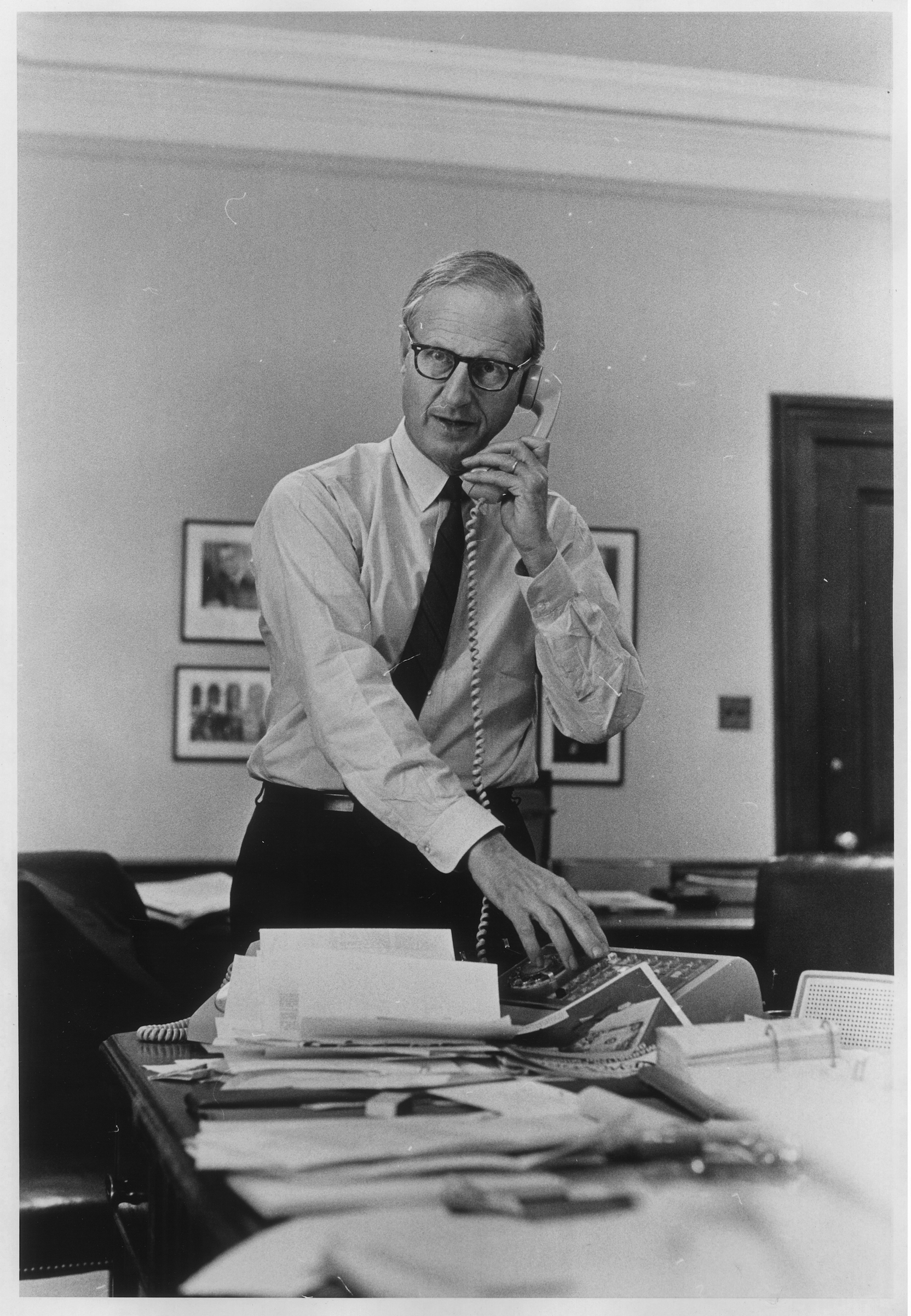
Zirin is a lawyer, author and TV talk show host.
In 1961, President John F. Kennedy appointed Robert Morgenthau, who died Sunday at 99, as United States Attorney for the Southern District of New York. He could not have conceived of how great a prosecutor Bob would be.
The scion of a distinguished German Jewish family, Bob became the quintessential public servant. Public service was embedded in Bob’s DNA. His grandfather had been President Wilson’s Ambassador to what is now Turkey. His father, Henry Morgenthau Jr., had been the Secretary of the Treasury under Franklin Delano Roosevelt. As a young man, he met Roosevelt and Churchill, who visited his parents’ home. When Churchill came, Bob made the drinks.
I first met Bob Morgenthau 52 years ago when he was about to appoint me as an Assistant United States Attorney. I had already gone through a rigorous vetting process when he summoned me to his office. I was so excited about the job that I didn’t even ask the salary. And my adventure began. Robert M. Morgenthau swore me in on May 17, 1967. My service was for three momentous years, from 1967 to 1970, but my years with him were the experience of a lifetime, which I described in first book, The Mother Court, for which he generously wrote the foreword.
Everyone in the office called Bob “the Boss” out of affection and admiration — not because we were subordinates (though subordinates we were), but because he was the guiding spirit in a collaborative enterprise to which we were all totally dedicated.
In fact, Bob well understood that no lawyer really has a boss. He never had one himself. He taught by example the important lesson of independence of thought and of action. He even lived on Independence Avenue in the Bronx.
Get your history fix in one place: sign up for the weekly TIME History newsletter
Bob was a survivor. He spoke of the “importance of being lucky.” He had served four and one-half years in the Mediterranean and Pacific theaters in World War II. He was the executive officer of two destroyers, one of which played a key role in the battles of Okinawa and Iwo Jima in the South Pacific, and he later recalled seeing the Marines raise the flag at Mount Suribachi. He also had a near death experience when his ship, the USS Lansdale, was cut in half, and he spent three hours in the water before being rescued. He spoke of his feelings at the time with his characteristically self-deprecating humor, “I made a number of promises to the Almighty, at a time when I didn’t have very much bargaining power.”
Bob’s dedication to public service was contagious. He served for years on the board of trustees of Temple Emanu-el, New York’s largest Jewish house of worship. He became Chairman of the Museum of Jewish Heritage, the magnificent Holocaust memorial on the southern tip of Manhattan Island. He had a strong feeling for justice, perhaps tempered by his war experiences, that seemed embedded in his DNA, and he inspired excellence in an entire generation of young lawyers. He loved to target organized crime. After all, it was organized criminals who took over the German state in the 1930s.
Independence was not all Bob understood. He understood that what you did for other people is what counts in life and makes it all worthwhile. He understood that the government wins its point when justice is done — not the other way around. He understood that the law is the servant of the people, but that no one is above the law. He understood the supremacy of human rights everywhere. Like his father before him, he understood the unspeakable horror that can occur when criminals seize control of the state. He understood the imperative of ethical standards in government, and never compromised.
On Nov. 5, 1968, Richard Nixon was elected the 37th President of the United States and, for us in the U.S. Attorney’s Office, something precious was irretrievably lost. We knew that Nixon would want to fire our boss, and replace him with a Republican, but nothing happened immediately. On Dec. 17, 1969, the hammer fell. The White House announced that Nixon would replace Morgenthau with Wall Street lawyer Whitney North Seymour Jr., a capable lawyer. I was nonetheless devastated.
There are cataclysmic moments in our lives when the world seems to stop spinning on its axis. For us in the Southern District U.S. Attorney’s office, such was that December morning when we gathered in the library outside Bob’s office to say goodbye. I was choked with emotion. It was the end of an era — but, after a more than five-year hiatus, Bob returned to the prosecutor’s office, this time as District Attorney of New York County, where he served 35 years, retiring at age 90. History will never forget him, and neither will I.
Adapted from The Mother Court by James D. Zirin. Zirin is also the author of Plaintiff in Chief and the host of Conversations with Jim Zirin.
More Must-Reads from TIME
- Cybersecurity Experts Are Sounding the Alarm on DOGE
- Meet the 2025 Women of the Year
- The Harsh Truth About Disability Inclusion
- Why Do More Young Adults Have Cancer?
- Colman Domingo Leads With Radical Love
- How to Get Better at Doing Things Alone
- Michelle Zauner Stares Down the Darkness
Contact us at letters@time.com